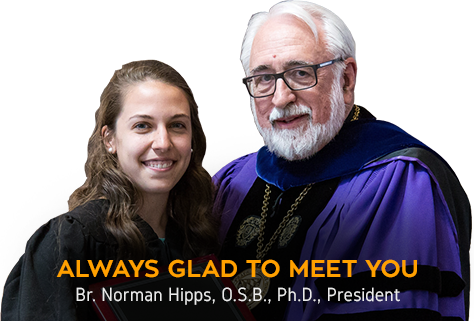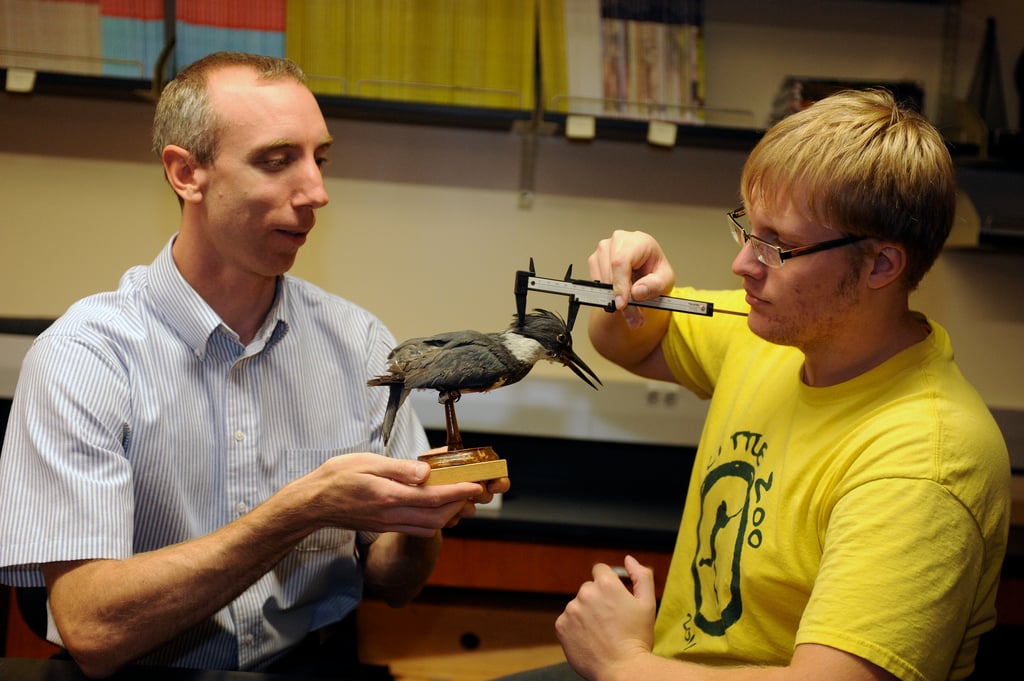Welcome to my blog! I got the idea to write about my sabbatical because so many people, both here at Saint Vincent College and off campus, have asked me “What’s a sabbatical?” and “Why do you get a sabbatical?” and “What do you plan to do with it?” I will answer all those questions in this post, and in my later posts I will update you on my sabbatical activities. These activities will include my research on birds as well as the more mundane things that professors do when they take time off from teaching. My sabbatical starts now and it will continue through summer 2015. Now, about those questions:
What is a sabbatical?
The words “sabbatical” and “Sabbath” share the same Greek/Latin/Hebrew roots. The Sabbath, of course, is a time of rest, and it happens every seventh day, just as Genesis (2: 2-3) tells us that God rested on the seventh day after creating day and night and everything else. One might therefore think that a sabbatical would be a time of rest that occurs at regular intervals. This is kind of what I thought a sabbatical was when I thought about applying for one.
However, when I looked up the words sabbatical and Sabbath on the internet, I found an occasional reference to the word “ceasing.” This ceasing is really a bit closer to what a sabbatical is for a faculty member. It is a cessation of normal campus activities, but most sabbaticals at Saint Vincent College and at other academic institutions are not wholly a period of rest. Instead, a sabbatical is an opportunity to shift emphasis from one set of activities (e.g., teaching, advising, committee work) to a different set (e.g. research, professional development).
It is reasonable to also view the sabbatical as a period of rest, but it is not idle rest; it is a time for thought and formulations for the future. I am not a theologian, but this seems consistent with the idea of Sabbath. After all, why would God need a day of rest after creating the world? I doubt God gets tired. Perhaps the “rest day” was spent planning and pondering the future.
Oh dear, I think I have just compared myself to God! (I could delete this now to save me some embarrassment, but I will leave it in just to show I have a sense of humor. I promise to work on my sense of Benedictine humility during my sabbatical.)
How did I receive a sabbatical?
I applied for it. I wrote an 11-page proposal outlining what I intended to do with my time. My Department Chairperson and the Boyer School Dean wrote letters of support, and it was approved by the college administration and college Board of Directors. There was no guarantee that my sabbatical would be approved, but it was. I am very thankful and appreciative to have this opportunity.
Why do (some) professors get sabbaticals while people with other kinds of jobs do not get them?
I don’t know the history of why professors get sabbaticals, but it’s been going on for many generations. It’s a tradition. It has great value to the people who receive one, and it probably persists because a professor coming back after a sabbatical adds value to the college itself; he or she will be renewed, energized, and ready to tackle more challenges in the classroom or research lab. The granting of sabbaticals to people in other professions would probably have the same positive effects, but alas, there is no system in place for that. This is not my fault. Please be happy for me and try not to be jealous.
What are my plans?
When I submitted my application, I described three main projects. Here are brief descriptions:
-
Woodpecker Nesting Study. The goal of this project will be to finish collecting data and prepare a manuscript for publication on the habitat preferences and behavior of woodpeckers at nest sites in and around Rector, Pennsylvania.
-
Woodpecker Home Range Manuscript. The goal of this project will be to complete a manuscript I’ve had on hold for a long time. My publication will be an analysis of home range use by Downy Woodpeckers. My paper will describe the size of individual bird territories and how much overlap there is between individuals. I have the largest dataset on Downy Woodpecker home ranges ever collected (in the world).
-
Federal Authorization to Mist Net. Professional ornithologists (people who study birds) often need to catch birds as part of their study. The birds are then released unharmed. My research students and I use walk-in traps baited with birdseed to catch birds, but there is another technique called mist netting that I would like to use. I used mist netting early in my career, but I have gotten out of practice and will need retraining before receiving the required approval from the U.S. Fish and Wildlife Service.

I have since thought of a few more things to do while on sabbatical. I have an idea for a magazine article combining my interests in ornithology and swimming. I need to reorganize my research lab to better accommodate the research projects of Fr. Shawn Anderson, a new professor of biology now sharing that space. I need to submit annual reports to the state and federal agencies regulating my bird banding activities. I need to continue working with my senior research students in spring 2015 as they write their research theses. There is a Bioethics Forum I volunteered to organize this February.
Coincidentally, I will be getting married, becoming a stepdad, and buying a house in 2015. I will also be continuing my hobby of training for triathlon competitions. One reason for this blog is to ensure I still do the professional work I said I would do, even though I will be tempted to concentrate on these very important things in my personal life. Each week, I will write an entry that describes what I have done toward my professional goals. Having a weekly, self-imposed blog deadline will keep me going. I hope to keep this blog interesting. In fact, I am certain it will be. It’s quite fun to be a professor and ornithologist, and now you’ll see why!


 中国学生
中国学生 Estudiantes
Estudiantes




